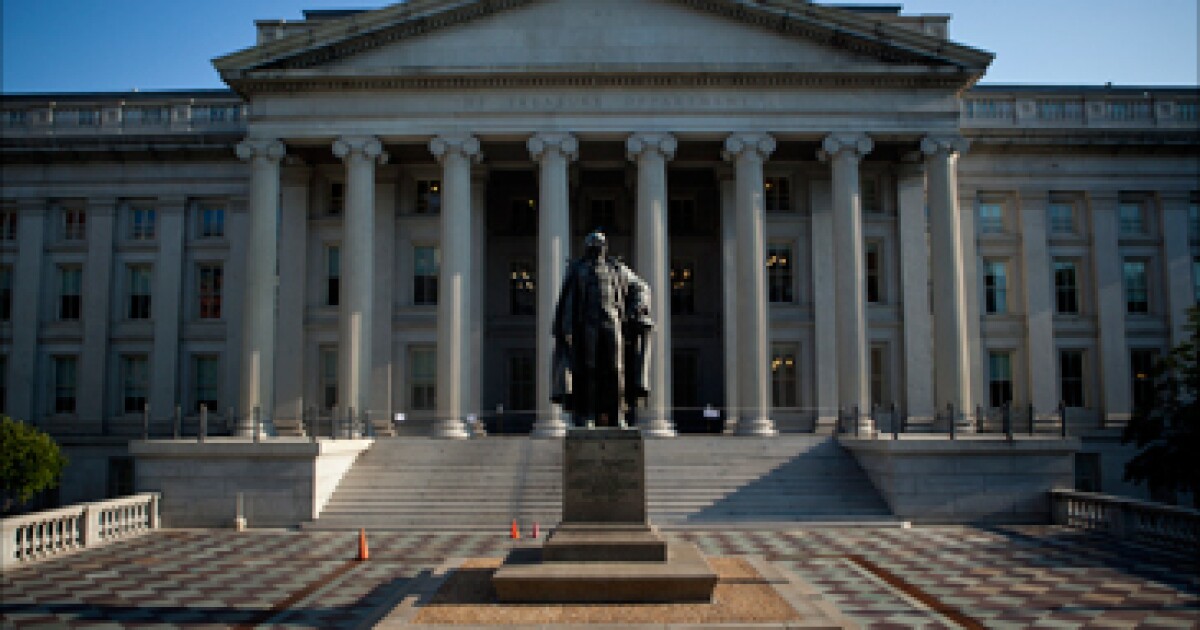
WASHINGTON — The Biden administration said that a proposed funding slash to the Treasury Department could delay critical rule rollouts and hamper agencies' ability to police financial institutions, spurring the White House to promise to veto the bill should it reach the president's desk.
A House funding bill, the latest skirmish in a long conflict between lawmakers that threatened to shut down the federal government in mid-November, would provide the Treasury Department with $13 billion in discretionary funding, $1.2 billion less than the previous fiscal year.
While the Republican House bill may still be amended before it comes up for a vote, it represents the beginning of a new round of budget negotiations between the administration and House Republicans, and shows the distance between the two parties. Specifically, it does so in how both parties see the oversight of banks and other financial institutions, and how much money they're willing to allocate to that end. The Biden administration laid out its views in an Office of Management and Budget report.
Among other line items, the administration said that a reduction in funding to the Financial Crimes Enforcement Network could delay the rollout of the beneficial ownership rule, "undercutting a critical anti-money-laundering initiative and reducing support for the small businesses that will be required to use the new system."
The Community Development Financial Institution Fund, which provides liquidity to CDFIs, would also be cut by $45 million under the GOP bill.
"This reduction would decrease financial assistance and technical assistance awards to certified and emerging CDFIs, reducing economic opportunity in economically distressed communities, including rural and urban areas," the Biden administration said in the report.
The administration also said that it opposes a provision in the funding bill that would subject the Consumer Financial Protection Bureau to the congressional appropriations process.
The attempt by the GOP bill to structure the CFPB under the congressional appropriations process will likely ultimately be negotiated down with the Democratic-written Senate bill, but is an important signal in how the GOP envisions reorganizing the funding of the CFPB should the bureau's funding structure be declared unconstitutional by the Supreme Court.
The proposed GOP budget would also cut funding to the Securities and Exchange Commission, whose chair, Gary Gensler, has been a major target of Republican lawmakers on the House Financial Services Committee. The Biden administration said that doing so would "curtail critical investor protection activities without achieving any deficit reduction."



